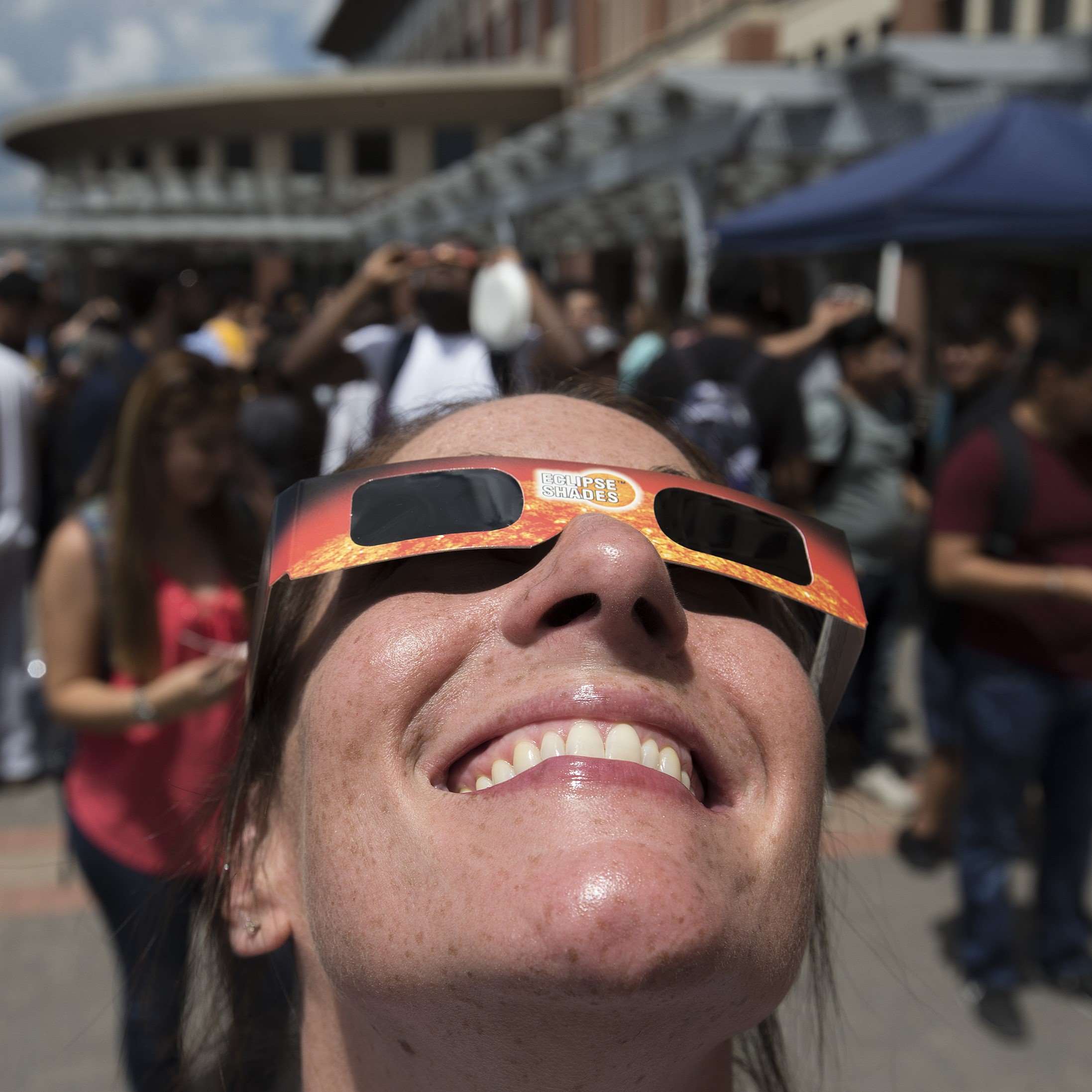
"The sun shone, having no alternative, on the nothing new."
That is the first sentence of Samuel Beckett's "Murphy," and, much of the time, it's true. Today, however, it won't be, as the sun's typical shining will be blocked due to the solar eclipse, when the moon passes between the sun and earth. And while the eclipse isn't something difficult to see (hint: look up), it certainly is something that isn't easy to understand, especially from a physics perspective.
For this reason, Lecturer Aimee Bichler, Ph.D., will explain what an eclipse is, notable historical eclipses, how to view an eclipse safely, and more. Her lecture begins at 11:45 a.m. at the Fondren Commons in the College of Sciences and Technology Building. Dr. Bichler is a UHD Earth and Planetary Science Lecturer with a focus on undergraduate university education. Her skills include paleoclimatology, paleo-oceanography, sedimentology, geochemistry, sequence stratigraphy, biostratigraphy, and petroleum geology.
Afterwards, attendees are invited to go outside to view the event, and the first 100 attendees will receive a pair of Lunt Solar Systems glasses (American Astronomical Society-approved, meeting the ISO 12312-2 international standard).
According to NASA's webpage on the event, there won't be another total solar eclipse visible from the U.S. until 2044, although UHD and Houston will only experience a 94% partial eclipse starting at 12:20 p.m.
